While you’re probably familiar with Warsaw and Krakow in Poland, I don’t blame you if you haven’t heard of Wroclaw. I hadn’t before I went but the fact that Poland’s fourth-largest city, home to over 640,000 residents (and over 140,000 students), remains largely under-the-radar is both surprising and welcome; the lively, culture-rich university town is home to incredible architecture, interesting museums, delicious food, and vibrant nightlife, all of which can be explored and enjoyed without the kind of dizzying crowds you’d expect in a city that’s as beautiful. In other words, while there were many tourists in Wrocław, at no point did it feel overly touristy, if you know what I mean.
An interesting thing to know about Wroclaw (pronounced vrots-wahv) is that over its history, it changed hands among different kingdoms more than a few times. As a result the city’s population consisted of a number of different ethnicities even in the Middle Ages, and traces of all of these identities and influences- Bohemian, Austrian, Prussian, Jewish and German can be found in its cultural fabric. Today, there is a sizeable Italian community that calls the city home.
Historical Context
As with the rest of Poland, you cannot begin to understand Wrocław until you’ve had a bit of historical context. After being taken over by Nazi rule in the 1930s, present day Wrocław, then the German city of Breslau became a Nazi stronghold, with numerous atrocities and mass murders committed against resident Jews and enemies of the state. In August 1944, the city was declared ‘Festung Breslau’ or a fortress city. During the Siege of 1945, much of the city was bombed and destroyed by the Soviet Red Army, resulting in a catastrophic loss of human lives.
In the aftermath, a peace deal was signed as part of the Yalta Agreement and Wrocław became a part of Poland. Poles arrived from the east as did people from what is modern day Lviv in Ukraine. Traces of German heritage and association were sought to be erased and a campaign of Sovietisation followed. In 1953, reconstruction of the Old Town began, adhering to the Baroque style and original historical architecture from before the city came under German rule. The city’s new residents took great pride in rebuilding it from the ground up and most of the reconstruction was completed within 20 years since the city was destroyed.
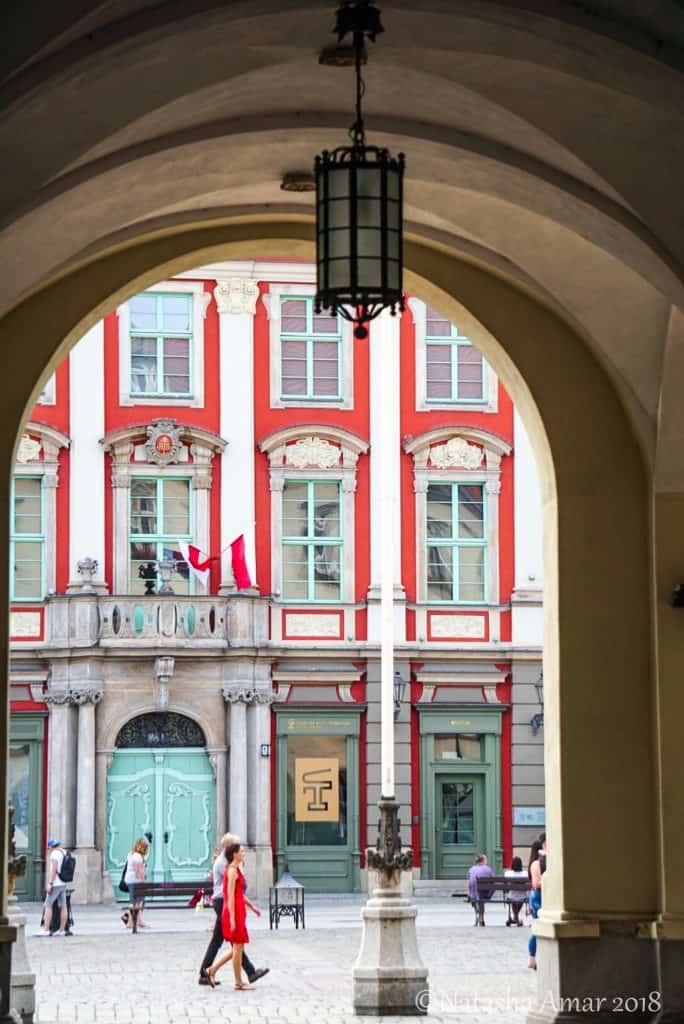
Top Things To Do in Wroclaw
While two days were enough to explore the main tourist attractions and sights in Wrocław, it’s the kind of city that I see myself returning to discover more of, thanks to its relaxed, welcoming vibe and friendly people. Here are the top things to do in Wrocław as well as Wrocław sights and attractions.
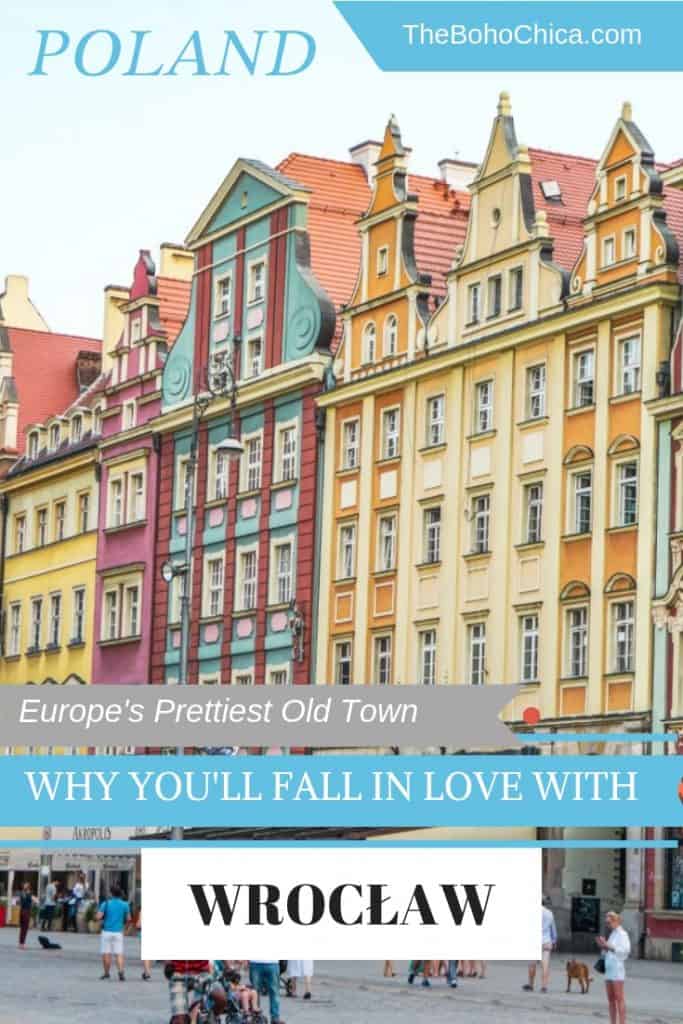
Share this to Pinterest
Admire the Architecture in Wrocław’s Market Square Rynek
Rynek or Market Square serves as the perfect introduction to Wrocław and I absolutely would not blame you if you find yourself gaping in awe at the colorful facades of townhouses around the square for a good few hours; Wrocław’s Market Square is considered to be one of the biggest and most beautiful squares in Europe. It’s the heart of all the action and is home to restaurants, cafés and bars.
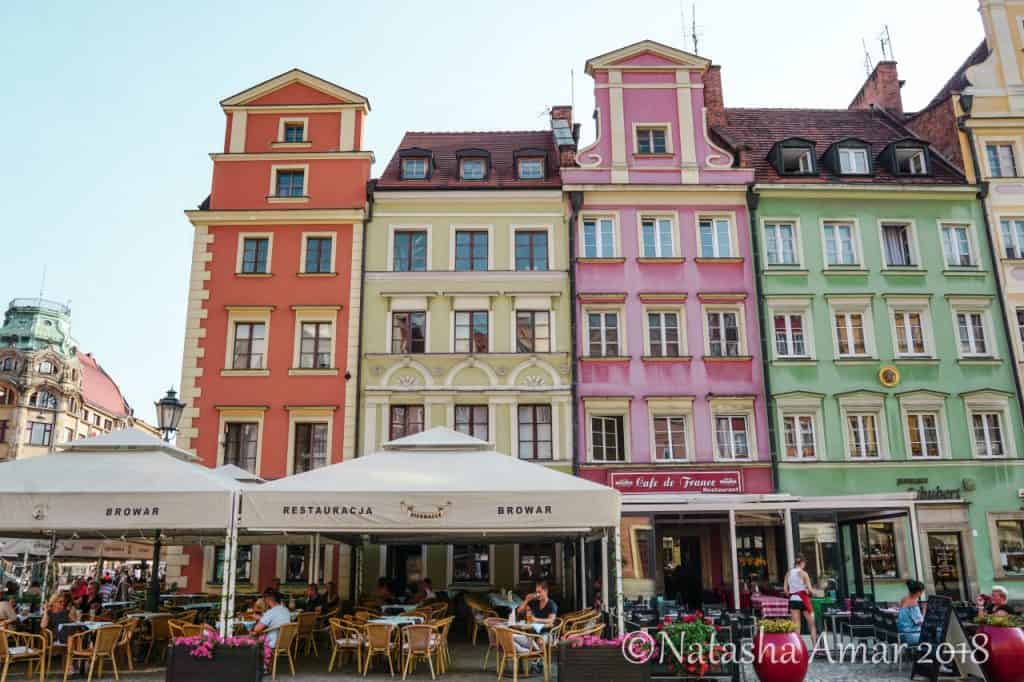
Market Square
Around the square, you’ll see a range of architectural styles ranging from Gothic and Renaissance to Art Nouveau. If you’re particularly observant, you might be able to spot realistic-looking painted windows alongside real ones created to maintain symmetry in some reconstructed facades. You can easily spend a few hours walking around here, sitting to rest and people watch at quirky bars, cafés or dining at one of many restaurants around the square.
The Gothic Town Hall, built over 250 years, is a magnificent, even if somewhat imposing structure that dominates the square and is home to the Museum of Bourgeois Art. Just outside is the statue of writer Aleksander Fredro that was brought from Ukraine in 1956.
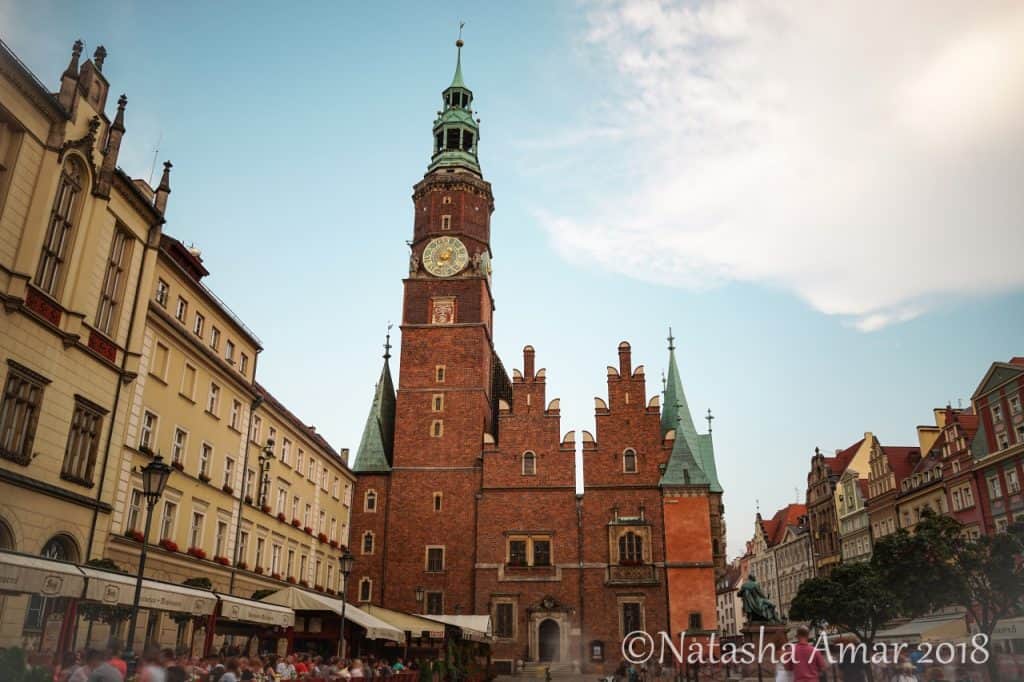
Wrocław Town Hall
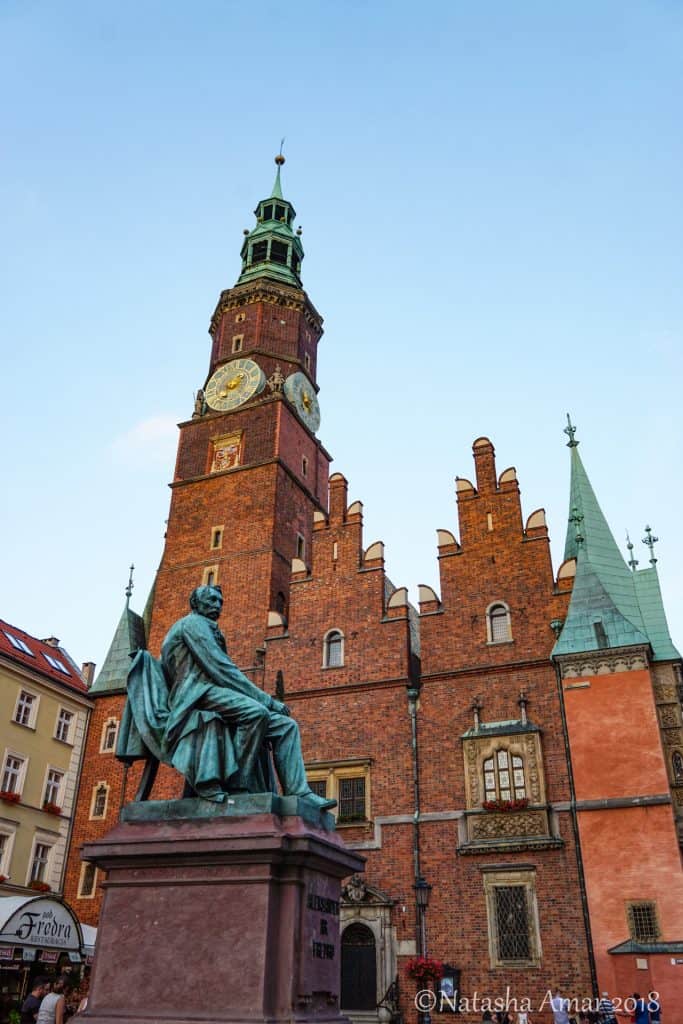
Wroclaw Town Hall
Take a Walking Tour of Wrocław
Walking tours are a great way to discover the diverse architectural styles of Wrocław, get oriented with its neighborhoods and add some real context to sightseeing. The University of Wrocław (11 Nobel Prizes between its faculty and alumni), Hansel & Gretel (yes, named after the children’s fairytale), Panorama of Racławice, White Stork Synagogue, Royal Palace and the Baroque Ossolineum and various churches and cathedrals are all interesting sights you’ll come upon while walking around the city, but having a local guide share stories will make your visit considerably more interesting.
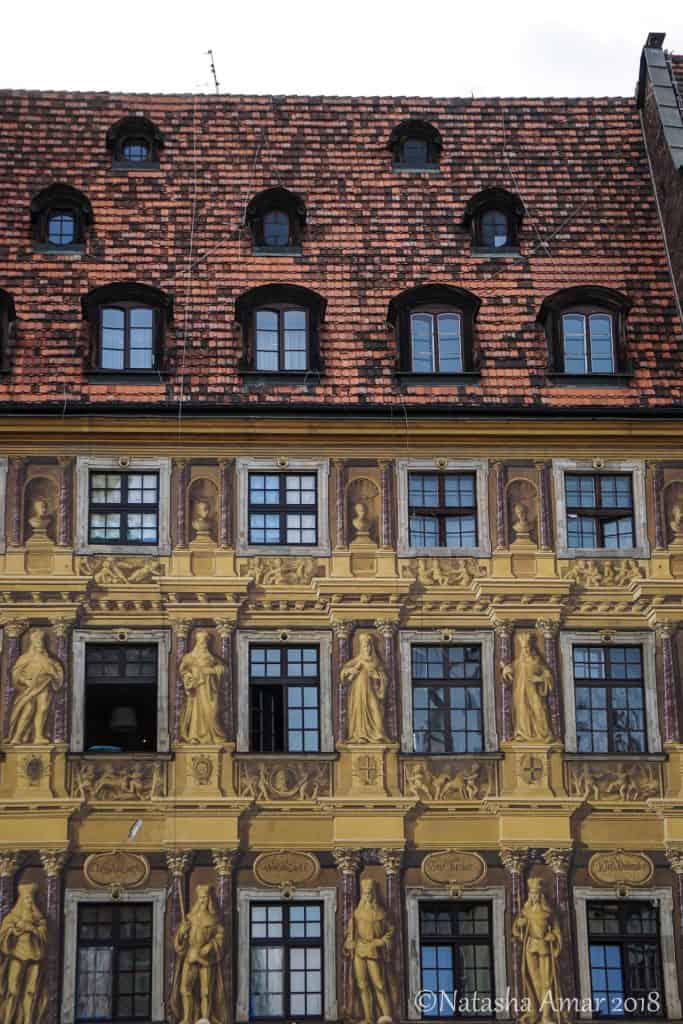
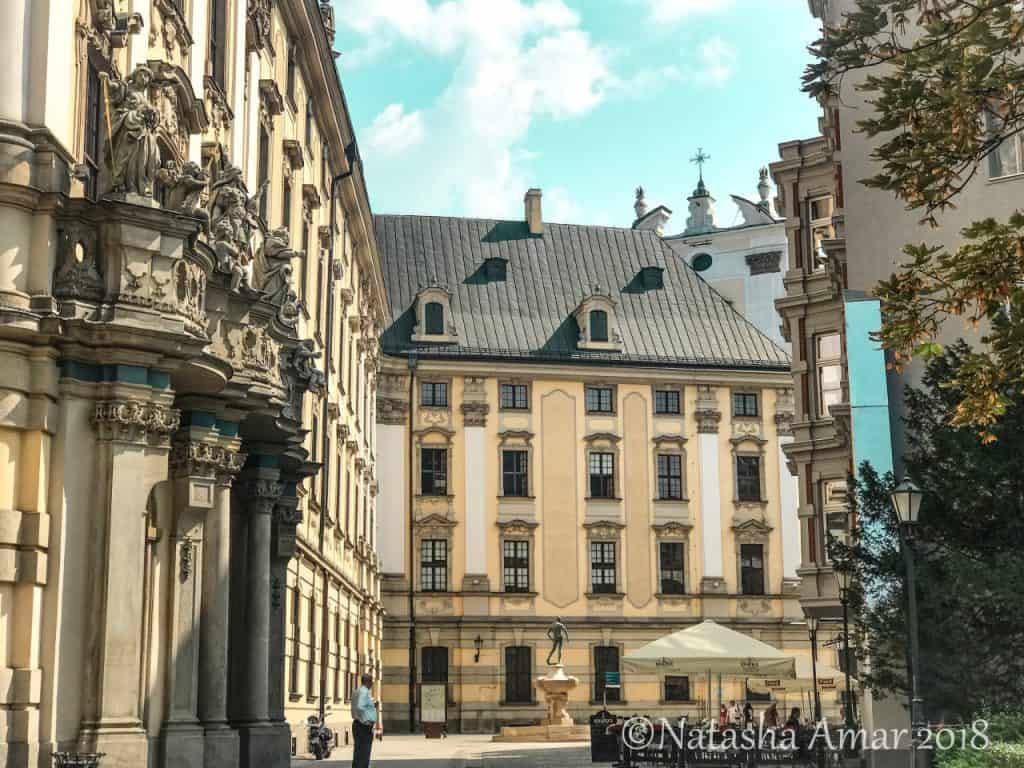
A Flower Market That’s Always Open
A few steps away from Market Square is Plac Solny, a smaller and quieter square that is surrounded by gorgeous colorful facades, minus the theatrics of buskers and tourists that can be found on Market Square. The square is named after the Polish word for salt, as it was the main trading place for salt, amber and leather. Today, it’s home to a flower market that’s open 24 hours a day, just in case you want to surprise your date or a loved one at 3.00am.
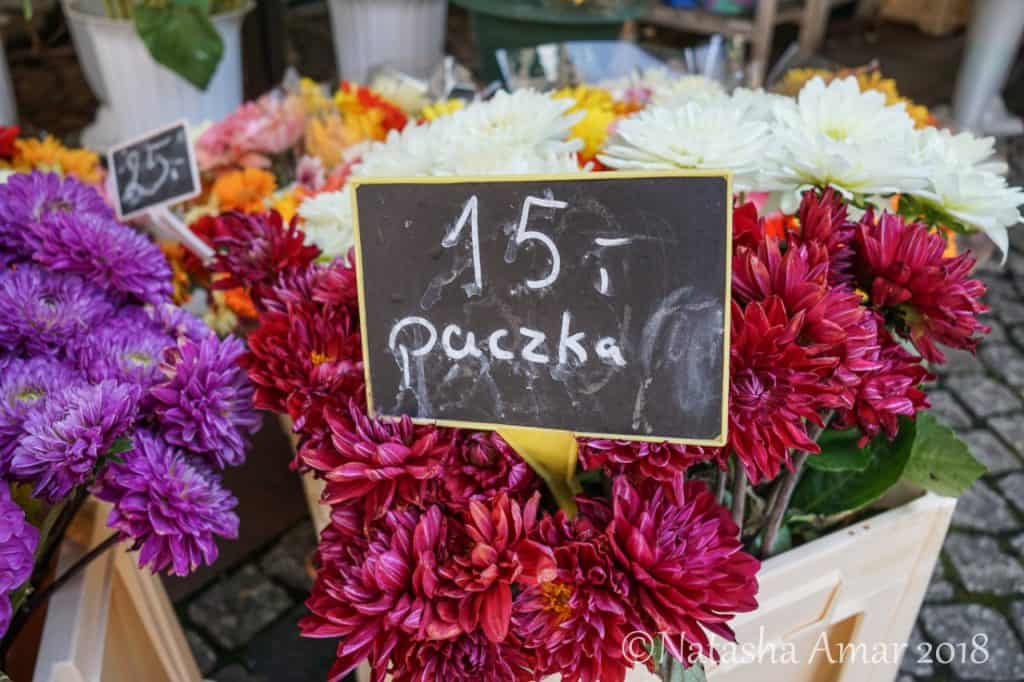
Flower market
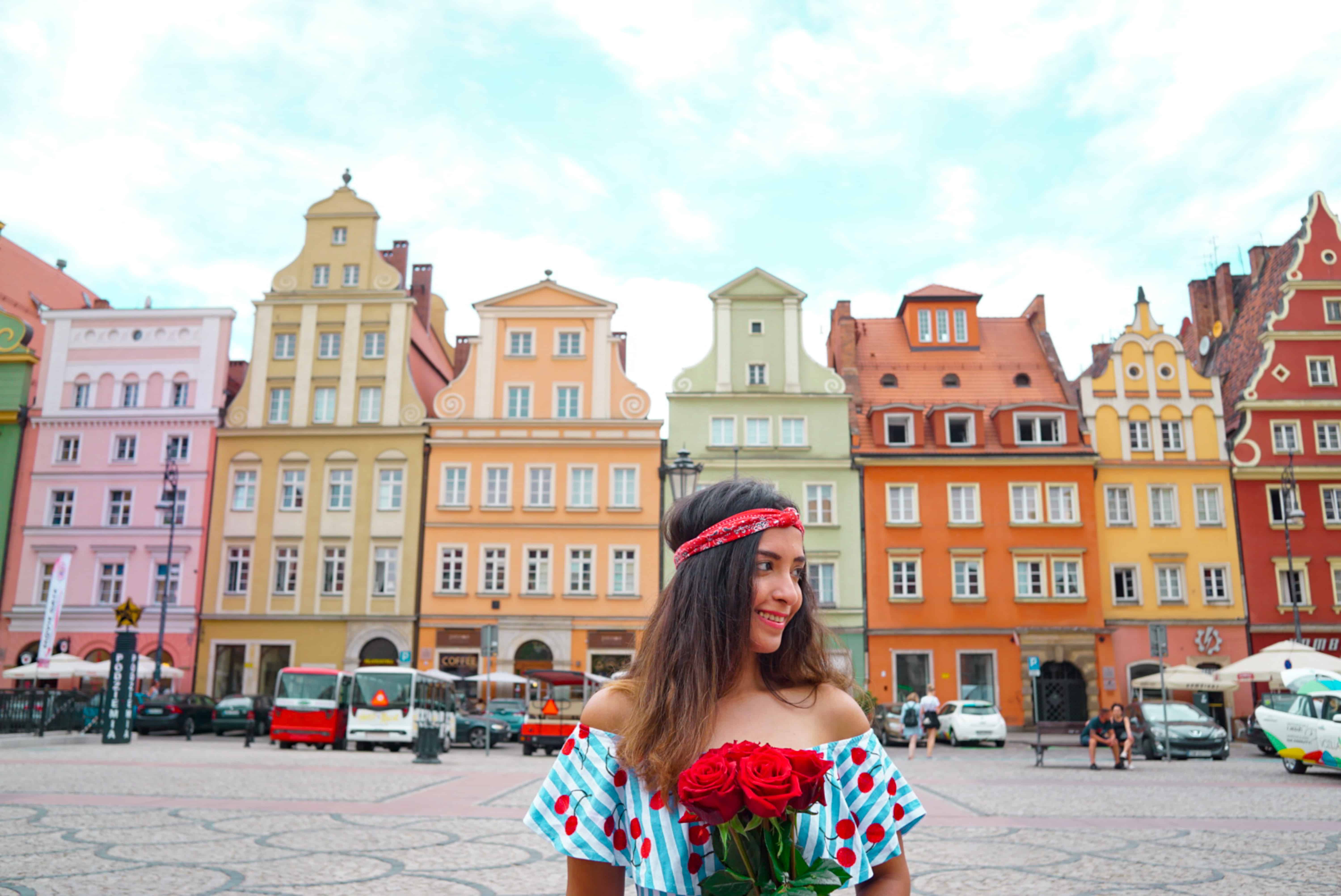
Plac Solny Wroclaw
Visit Cathedral Island or Ostrów Tumski
Ostrów Tumski or Cathedral Island is the oldest district of Wrocław and was once the city center. Over time, it developed as the city’s religious center, becoming home to many churches and religious buildings, fittingly away from the bustle of Market Square and offering a tranquil place of worship.
Even today, you’ll find a lack of restaurants and bars here, making it a quiet place to stroll around in the evenings, especially if the idea of a romantic stroll on cobbled streets under original gas lamps (102 of these lit by hand daily) appeals.
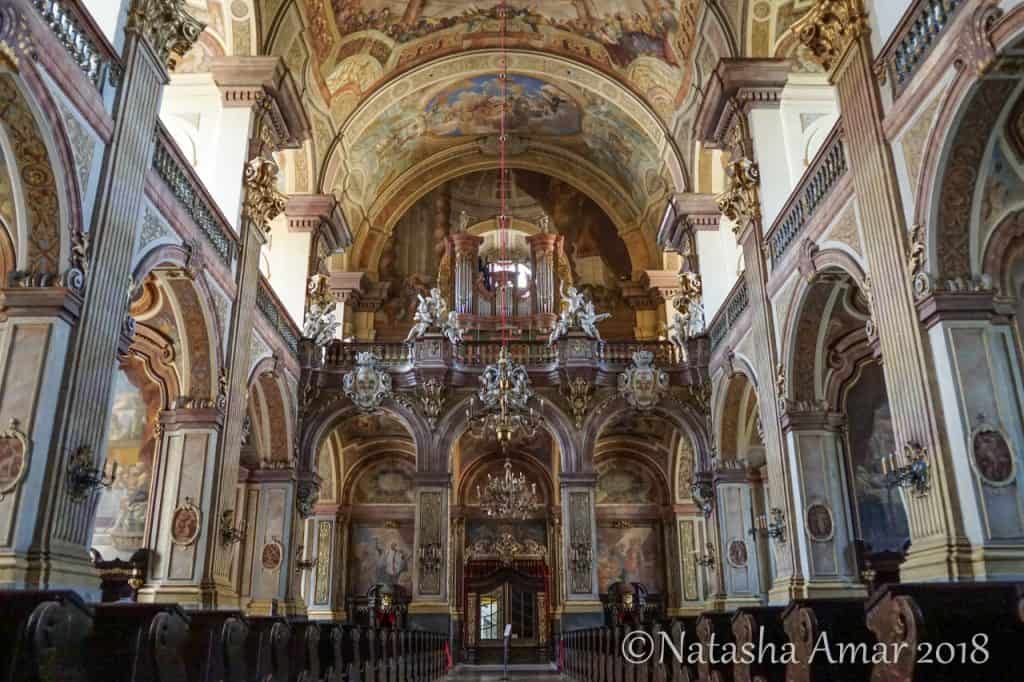
Cathedral of St. John The Baptist
The Cathedral of St. John The Baptist, Baroque University Library, Church of Saints Peter and Paul, Church of the Holy Cross, Russian Orthodox Church, and Archdiocese Museum are some of the main places to visit on Cathedral Island.
You can get here by walking on the Tumski Bridge, an iron bridge that was built in 1890 and gets a lot of attention from newlyweds and lovers who place padlocks on it in the hope that their love will last forever. In fact, this isn’t the only bridge in Wrocław. The city on the Oder River has about 130 bridges that connect its 12 islands.
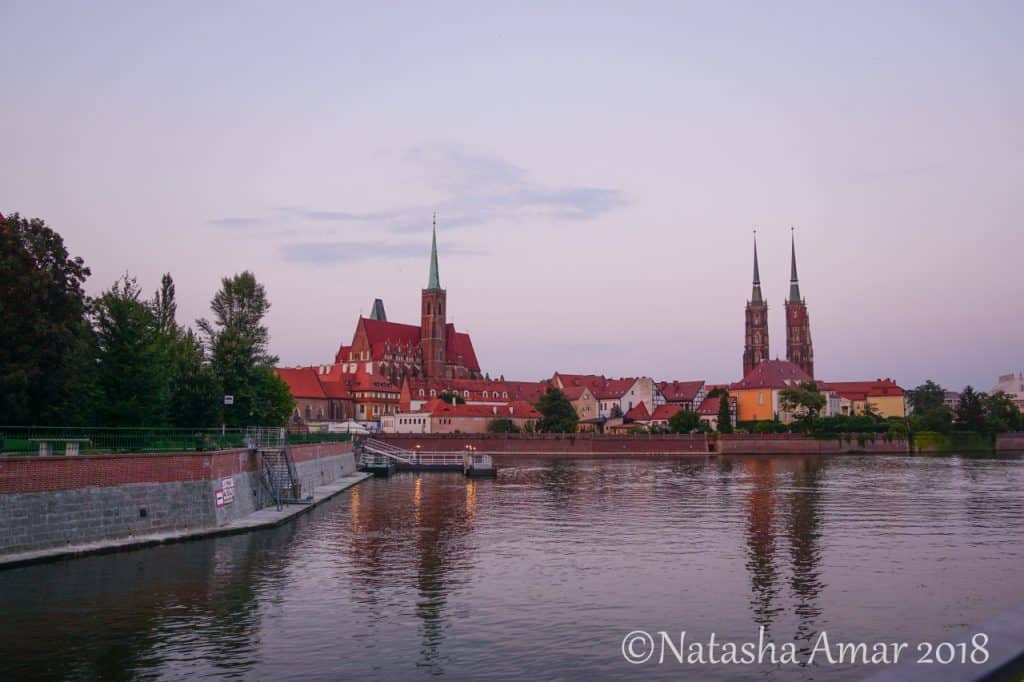
Cathedral Island
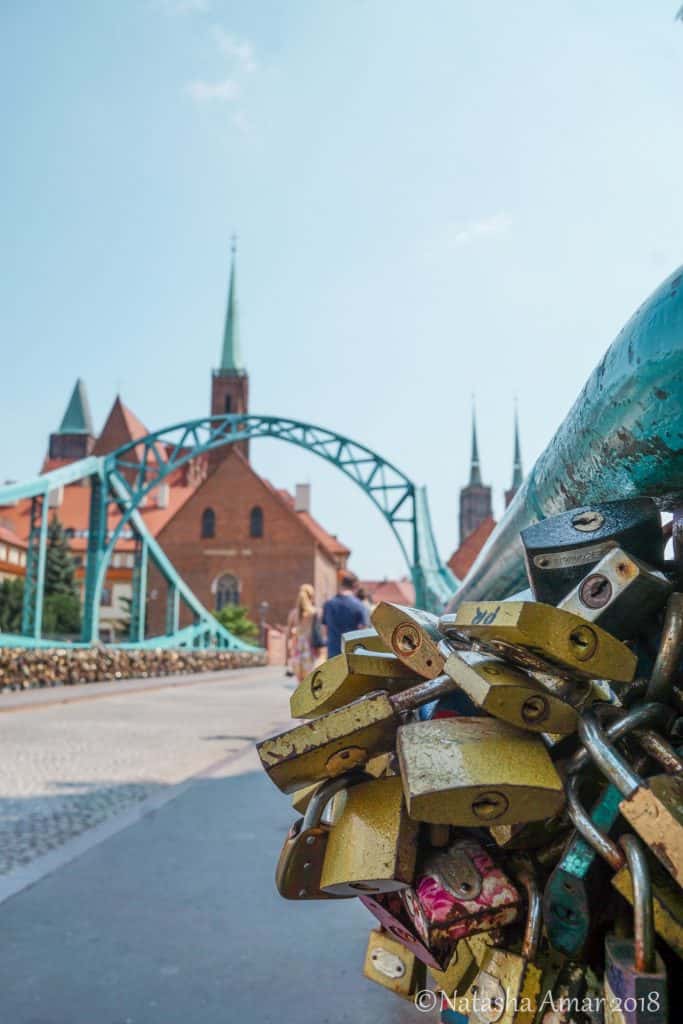
Tumski Bridge
Explore Wrocław’s Market at Hala Targowa
Exploring local markets is one of my favorite things to do when in a new city and Wrocław’s Hala Targowa is no exception. Built between 1906 and 1908, Hala Targowa is a spacious market hall where you’ll find gray-haired ladies pushing along shopping bags full of fresh strawberries and ripe tomatoes and local chefs sampling cheese and salami.
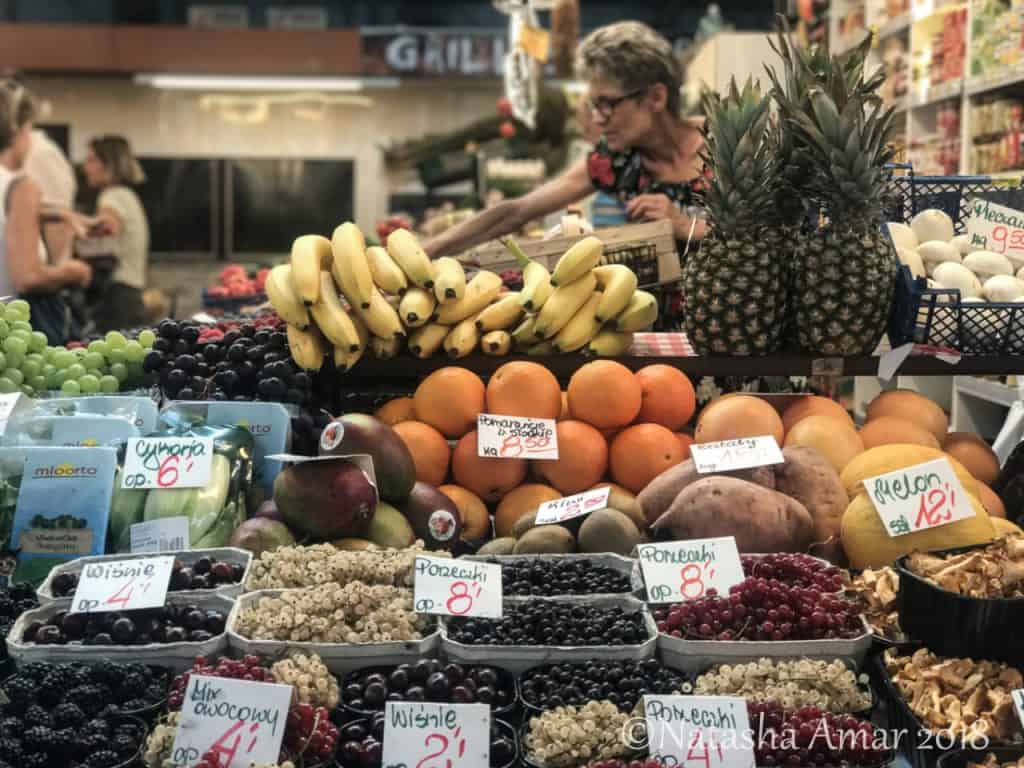
Hala Targowa
On the top floor, you’ll find shops selling items that might not fit in together or even in your traditional idea of a fresh produce market, but it’s all quite interesting and occasionally amusing if you have time to amble around. Rest up your legs at Café Taragowa on the ground floor with a coffee-break and a cup of really good coffee prepared by the 2016 World AeroPress Champion, Filip Kucharczyk.
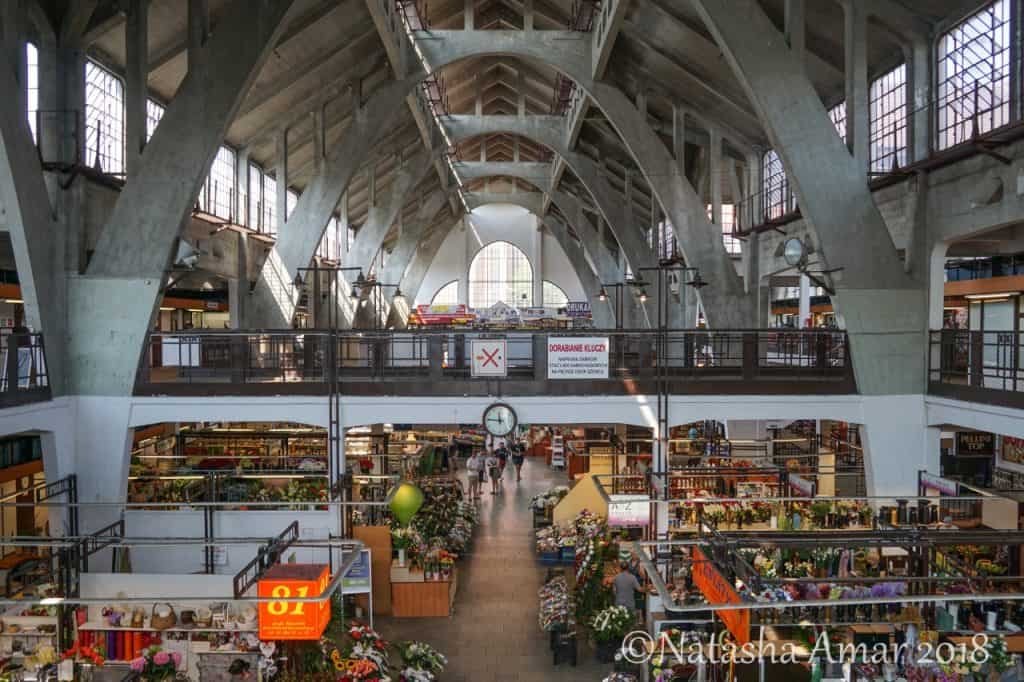
Hala Targowa
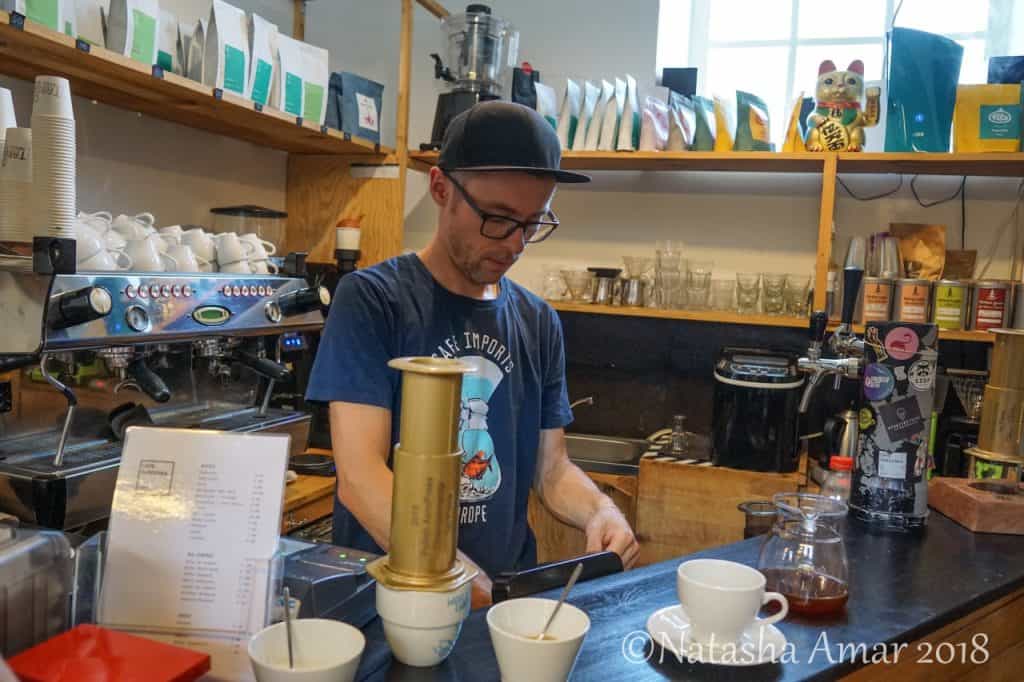
Cafe Targowa
Follow the Dwarves of Wrocław
One of the first things you’ll notice while walking around Wrocław is the presence of little bronze dwarves (called krasnale in Polish) on street corners, outside store doors and windows, and even in the city’s squares. They’re imaginative, witty, and each one portrays an everyday aspect of life in Wrocław. There’s one with a guitar on Market Square, a gardener with a wheel barrow, another holding an ice-cream cone outside an ice-cream shop, and yet another riding a Vespa with a pizza in one hand and a bottle of Chianti in the other (because it couldn’t be more Italian if it tried). Whether or not you like to admit it, spotting these dwarves makes you smile when walking around the city.
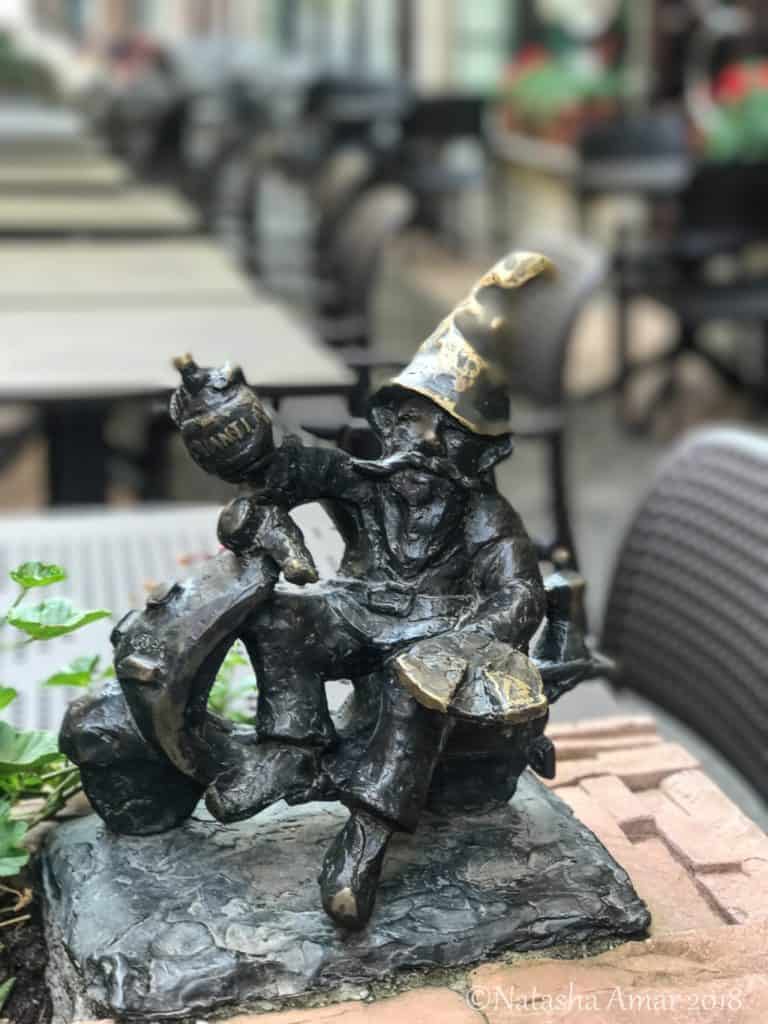
The Italian
So, what is the story behind Wrocław’s dwarves?
Before you’re tempted to think that this is some kind of brilliant marketing strategy for tourists, you should know that the story of these dwarves goes way back to the Orange Alternative, an anti-Soviet resistance movement that was started in the 1980s by a group of students who wanted to protest against communism, and more specifically, the censorship on free speech and public gatherings, but in a fun, peaceful way. They went out and defaced communist propaganda with paintings of cheeky dwarves, which made people laugh and perhaps in some way, gave them hope. They also started handing out free toilet paper, something that was increasingly difficult to come across in Poland during the communist regime.
As the movement gained traction, on 1st June 1988, 10,000 protestors donned orange conical dwarf hats and took to the streets in an event that was called the Revolution of the Dwarves and made international news around the world. In commemoration of the protest, the first dwarf, Papa Krasnal, was placed on Świdnicka street in 2001, a gathering point of the members of the Orange Alternative.
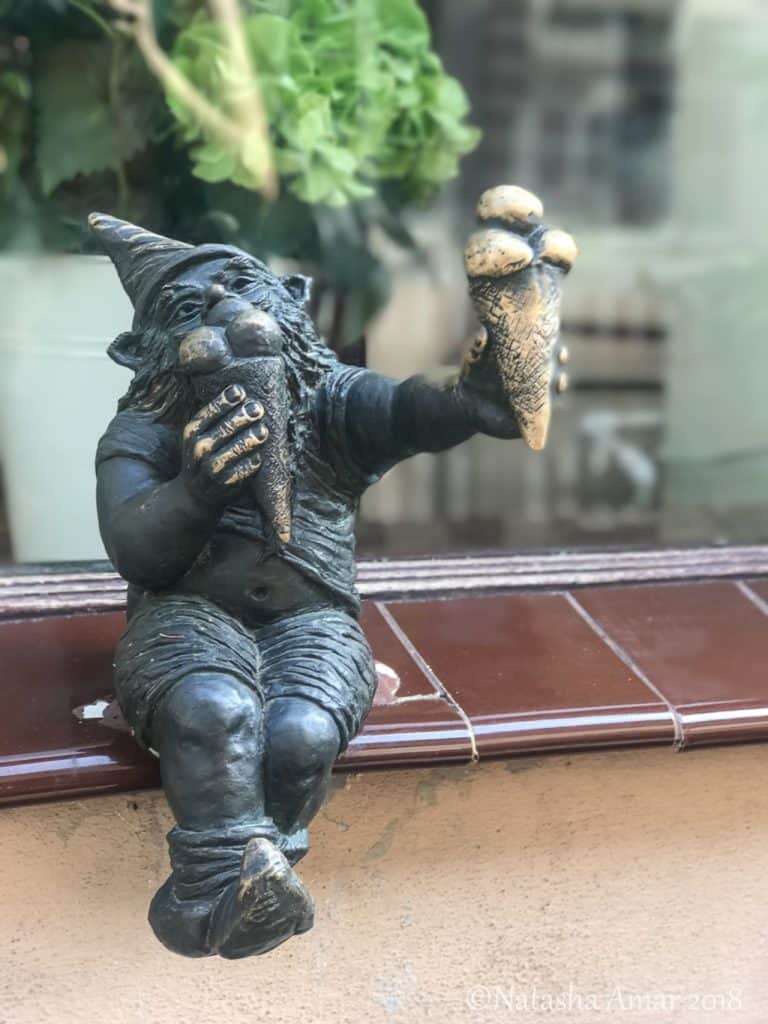
The ice-cream dwarf
While local artist Tomasz Moczek is credited for creating the first and over 100 dwarves around the city, in recent years, many more have sprung up around the city, representing private businesses such as hotels, businesses, and shops. There are over 300 to 500 dwarves around the city, depending on whom you ask. Some locals have mixed feelings and fear that the original purpose behind the dwarves might be lost on tourists, as new ones appear each year.
There’s an app that lets you find the dwarves around Wrocław as you walk around the city, earning you points for each discovery. There’s also an official website about the dwarves of Wrocław as well as an annual festival.
Get a Taste of Wrocław’s Coffee Culture
Wrocław is home to many interesting, eclectic and quirky cafés, quietly tucked away in streets away from the main squares, and this is something I’d love to go back and explore more of. From vintage and retro themed cafés and no-frills cafés where the focus is on the coffee to a cat café, there were quite a few where I peeked in through the windows and made a mental note to come back.
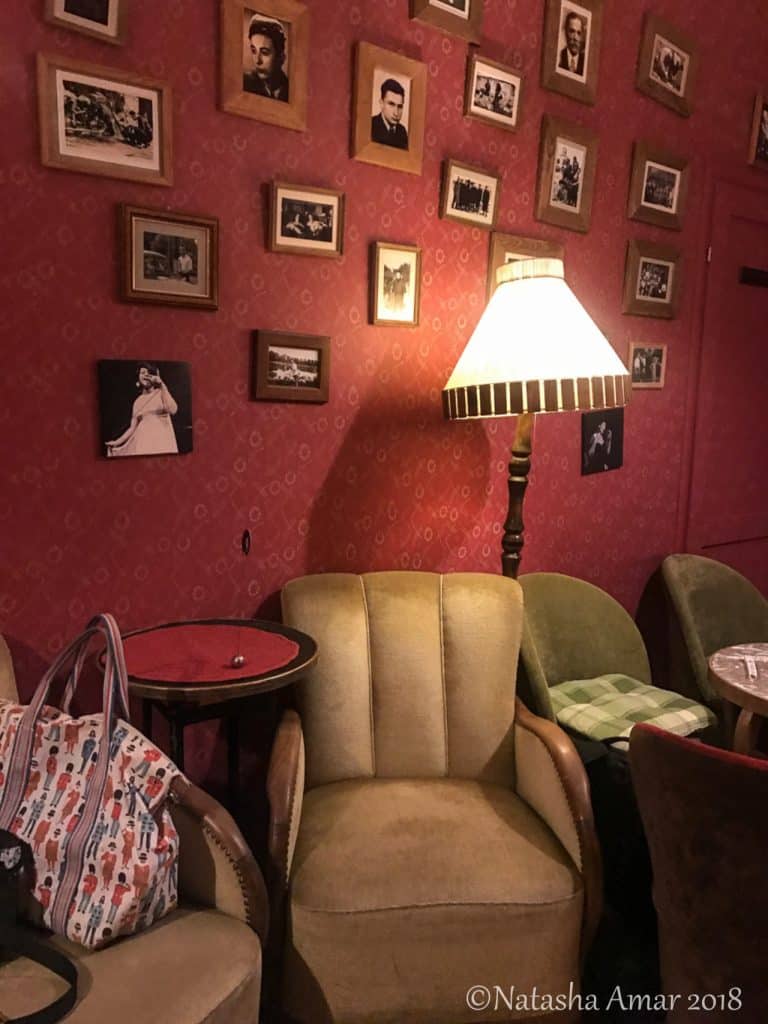
Vinyl Cafe
My favorite among the ones I visited was Vinyl Café, that came recommended by the insiders at JayWay Travel who organized my trip. Cozy, retro interiors, vinyl records, friendly service, and good, simple food and quality coffee made this the kind of place I’d happily return to relax, write or work. The place was pretty unassuming from the outside and had it not been recommended, I’d have missed it and that would have been a real shame.
Or a Beer at Wrocław’s Craft Breweries
Wrocław is also home to a robust and old beer tradition. In medieval times, when beer was safer to drink that contaminated water, Wrocław had something of a monopoly over the beer business in Poland, exporting beer within the region.
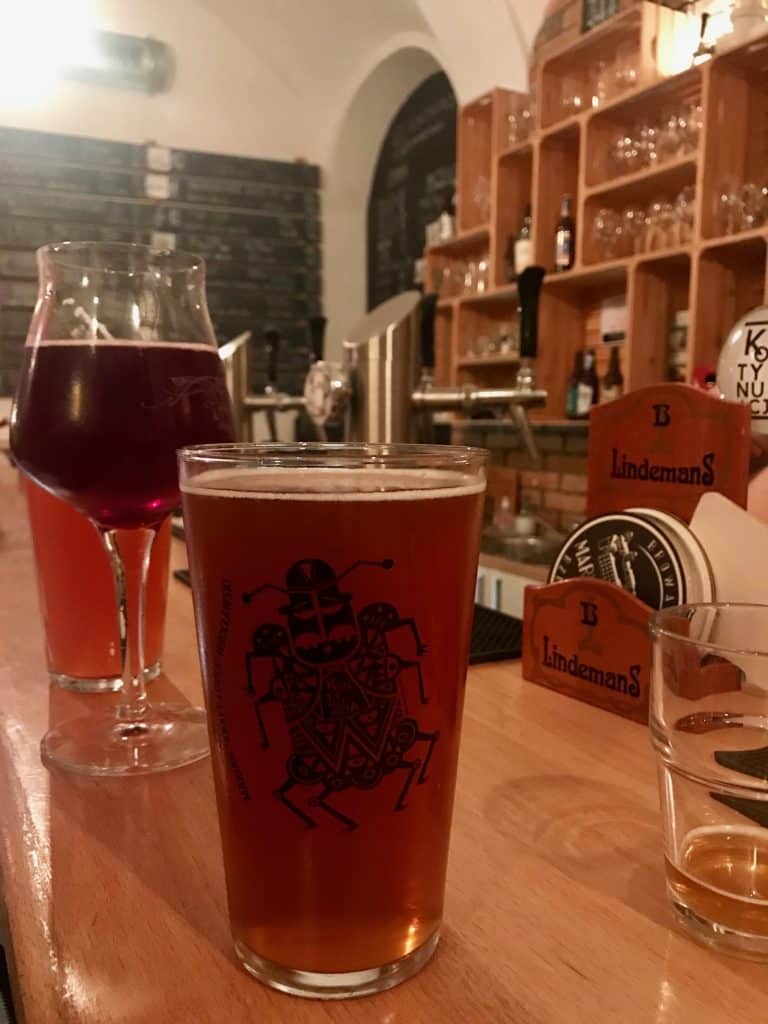
If you’re a beer-lover, then you’re in for a treat at one of many craft breweries and pubs around the city. I visited Kontynuacja, recommended by my local guide and it seemed to be pretty popular with locals on the weekend. The friendly staff here is only too happy to recommend a beer to suit your preference and will let you try one or more of their beers on tap before you decide. There’s also an annual beer festival and it might be worth checking it out if your visit coincides. Other breweries to try are Ale Browar and Szynkarnia.
Enjoy the Food in Wrocław
Perhaps it’s the foodie in me talking, but the best way to enjoy cities, for me, is to eat and drink a lot, all while you walk between the sights and attractions to burn it all off. And truth be told, I like to explore the food in new places more than I do the museums. Luckily, the many influences in Wrocław plus the fact that it’s a university town home to students from around Europe means that there is no lack of good and varied cuisine in the city. While you’ll find delicious Polish pierogi and specialties from Lviv (Ukraine), you’ll also find international favorites such as Italian food or Mexican tacos.
My two favorite places to eat at were Pierogarnia Stary Młyn (Rynek 26) and Gastropub Wrocławska (Szewska 59/60). The first came recommended by JayWay Travel for pierogi, Polish dumplings that you must try when in Poland.
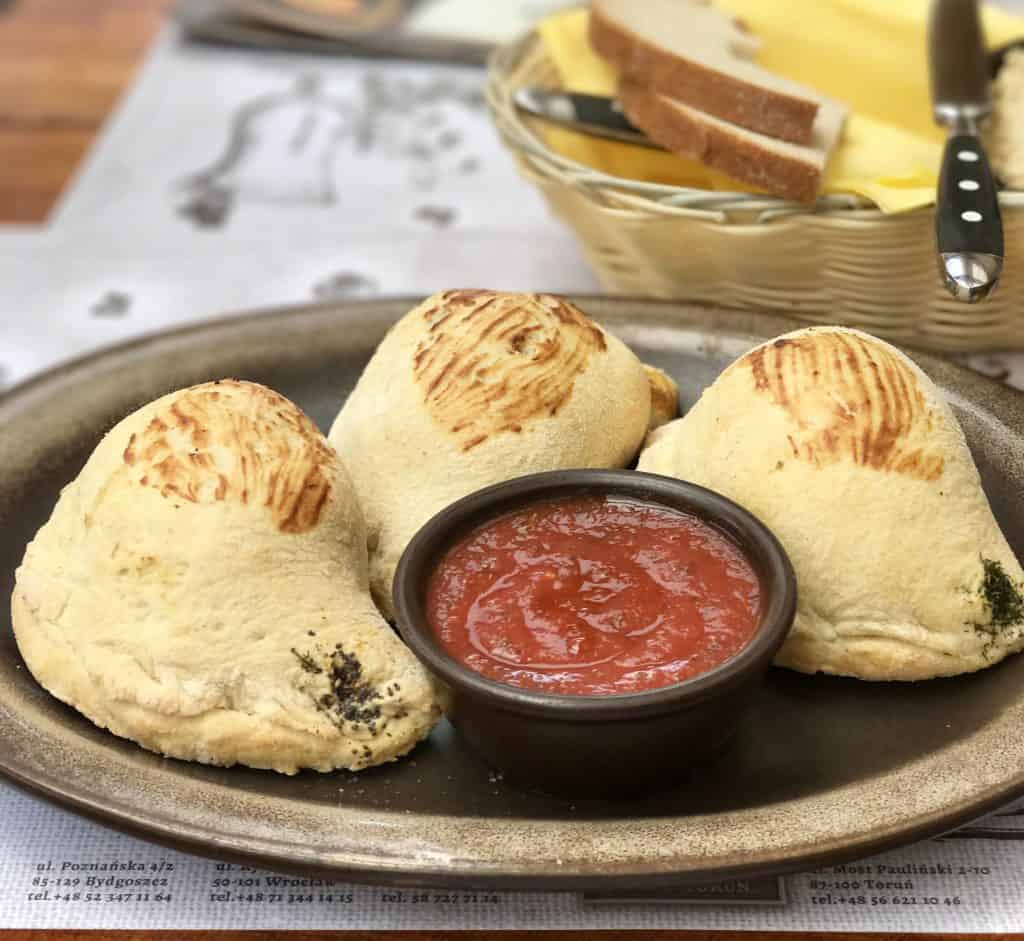
Pierogi
Pierogarnia Stary Młyn, located in Market Square, features a variety of baked sweet and savory pierogi and seems to be quite popular with locals. Head here and be prepared to wait a little, get a table on the terrace for a view of the square and order a plate of assorted pierogi (vegetarian options available) to try different ones.
Gastropub Wrocławska was quite busy on the weekend but I went here for lunch on a quiet afternoon. My meal of pasta was both simple and memorable and the service was friendly.
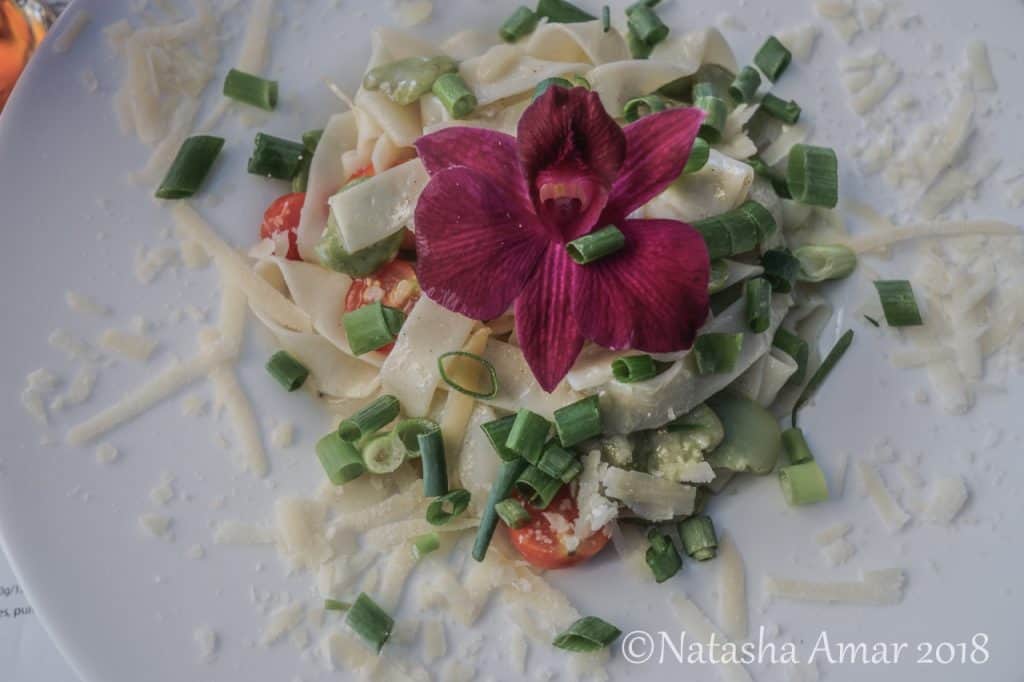
Visit Wrocław’s UNESCO World Heritage Site at Centennial hall
Built in 1913 by city architect Max Berg as a recreational building and a symbol of the power of the German Nation, Centennial Hall or Hala Stulecia is Wrocław’s UNESCO World Heritage Site. The design and engineering that went into building the reinforced concrete structure was somewhat advanced for its time, and surprisingly, the building survived both world wars. The main hall has a capacity of 10,000 people.
Today the venue hosts concerts, operas, exhibitions and sporting events and is open to tourists who can visit the Discovery Center to learn about its history and architectural details. It’s worth visiting the tranquil Szczytnicki Park when you go.
Traveling around Poland? Here are the top things to do in Gdansk.
Further reading: Here are some books and guides about Poland if like me, you love reading about the places you travel to.
Where To Stay in Wrocław
Set in the heart of all the action yet tucked away in a quiet lane a 2-minute walk from Market Square, Art Hotel, housed in a historic building is a family-friendly luxury hotel with plenty of personality. All the main sights and attractions of Wrocław are within walking distance.
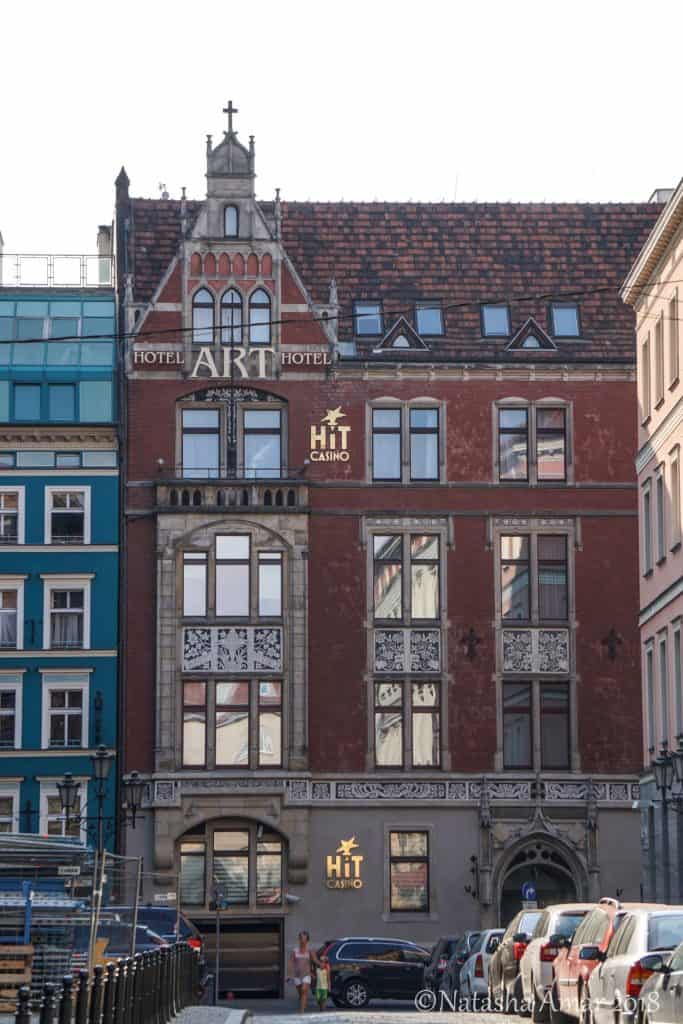
Art Hotel
Spacious rooms feature art by Polish artists, elegant furnishings, free Wi-Fi, flat-screen TVs and minibars. Upgraded rooms have whirlpool tubs. Service is friendly and impeccable.
The posh Art Restaurant & Café features 16th-century style interiors and serves Polish and Italian cuisine as well as a seasonal menu of specialties. It’s a great place to try Lower Silesian cuisine as well as dishes from Wrocław with 100-year old recipes. Amenities include a gym, a seasonal garden, and art exhibits.
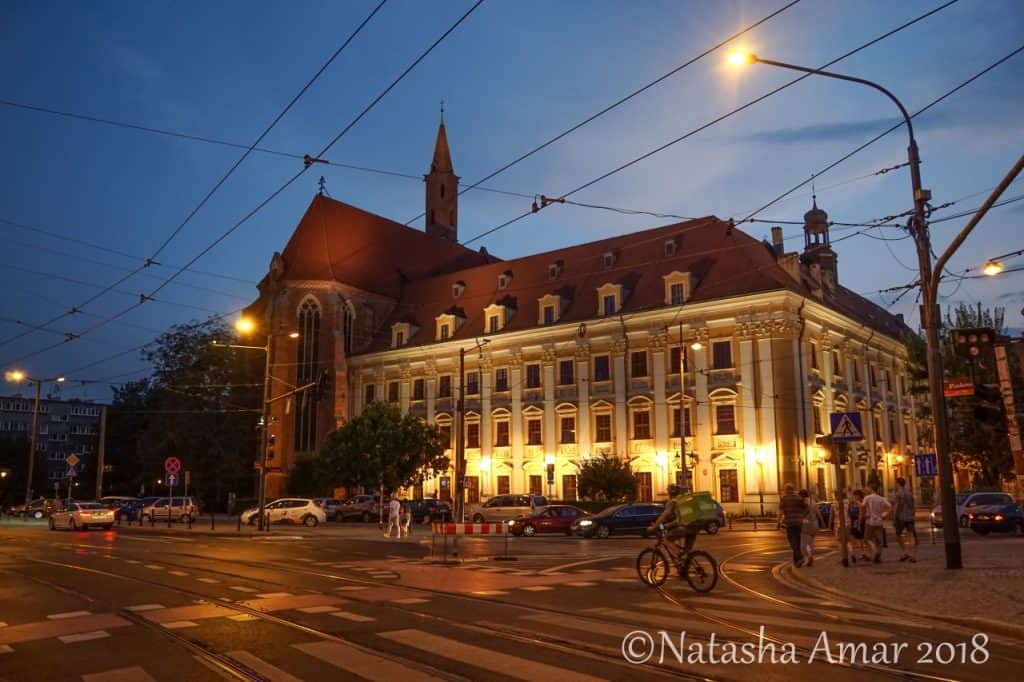
Wroclaw in the evening
Visiting Poland? Here’s how to spend a perfect day in Warsaw.
I visited Wrocław on a trip to Poland as a guest of JayWay Travel. All opinions, as always, are honest and independent.

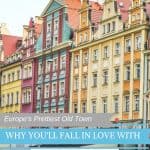



Keith
Saturday 14th of September 2019
Heading there next week! So look forward to trying out all the delicious food at the restaurants you recommended! Thanks for sharing!
Greg
Saturday 12th of January 2019
Wroclaw has some interesting viewpoints. I especially recommend the Witches' Bridge. Beautiful panorama and interesting history.
Tips2LiveBy
Saturday 8th of September 2018
We made our first trip to Poland in 2012 and Wroclaw was one of the cities we visited. Thanks for sharing. It was great to relive the trip through all of your pictures.
backpackbecki
Saturday 8th of September 2018
What an awesome looking City :) It's so colourful and bits of it looked a little bit Dutch. I've not done a lot of travel in Poland but this is certainly on my radar now. My list of European desinations is ever growing. Thanks for sharing your fab post and wonderful pictures. :)
Natasha Amar
Saturday 8th of September 2018
Thanks Becki! Glad to hear it :)